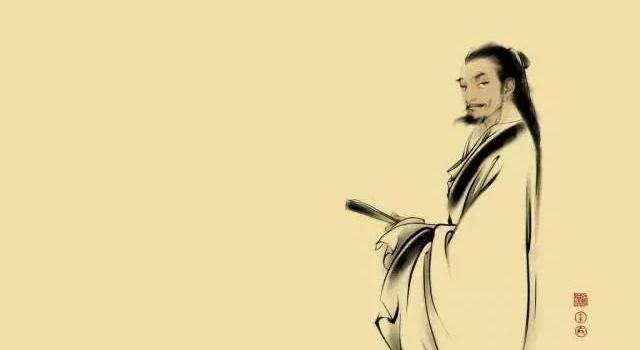A generation of wizards Jin Sheng sighed
In the thirty-sixth year of the Ming Dynasty (1608 in the Western Calendar), Jin Shengsi was born in Suzhou.
Perhaps it is the relationship between The Land of Suzhou and Hangzhou, Jin Shengsi was born different, when he was very young, Jin Shengsi was talented, but in the traditional Confucian values, the practice of "learning and excellence" this saying, just like the current xueba to enter Tsinghua, Peking University as a benchmark, the ancient xueba, pay attention to the examination of merit and fame to become an official. However, Jin Shengsi was not interested in imperial examinations or officials—neither the officials of the Ming Dynasty nor the officials of the Qing Dynasty were interested.

Jin Shengsi was interested in nothing more than two things: one thing was the "commentary on idle books" - in ancient China, books were divided into two kinds, one is the words of the saints, the four books and five classics, through which these books can seek merit. Others are idle books such as "The Tale of the West Chamber", the so-called idle books, as the name suggests, for idle people to see.
For future generations of literature lovers, we should thank Jin Shengsi for not doing the right thing - because Jin Shengsi's comments on a series of "idle books" such as "Water Margin" have given contemporary literature lovers a certain reference to their understanding and study of ancient literature. Jin Shengsi's literary criticism was praised by the Shunzhi Emperor of the Qing Dynasty, which shows his level of literary criticism.
Another hobby of Jin Shengsi is the love of ghosts and gods, and there are even legends that Jin Shengsi can understand ghosts and gods.
Weeping Temple case
In the eighteenth year of Shunzhi in the Qing Dynasty (1661 IN the Western Calendar), the Shunzhi Emperor died. In the same year, Ren Weichu, the county commander where Jin Shengsi was located, angered the readers, including Jin Shengsi, for his violent conquests. Therefore, Jin Shengsi and others gathered at the Confucius Temple in the name of the Shunzhi Emperor's weeping and mourning. Subsequently, Jin Shengsi and others wrote a joint letter to Zhu Guozhi, the governor of Jiangsu, asking Zhu Guozhi to depose Ren Weichu.
However, Jin Shengsi and others ignored the sensitivity at this time.
At this time, although the Qing Dynasty had been in the customs for eighteen years, the Southern Ming Yongli Imperial Court still existed, and anti-Qing forces in various places, including the Thirteen Families of the Eastern Qing Dynasty, Li Dingguo's Ministry, and Zheng Chenggong's Ministry, continued to operate. After the death of the Shunzhi Emperor, the newly inherited emperor of the Qing Dynasty was still an eight-year-old naughty boy.
Therefore, at this time, the Qing Empire was in a fragile, sensitive, and even state of grass and trees, and Suzhou was not far from the place where the Yangzhou Ten Days and the Three Massacres of Jiading occurred.
Therefore, at this point in time, Jin Shengsi and other Suzhou scholars gathered in the Confucius Temple to make trouble, which made the Qing court very nervous, and in the end, the Qing court chose to execute Jin Shengsi and others - this is considered to kill the new emperor's imperial court (Kangxi imperial court), and it is also a hundred people in Jiangnan.
This incident is the famous Confucius Temple case in history, and Jin Shengsi was killed in this way.
Whether Jin Shengsi is really as capable of understanding ghosts as he claims to be, others do not know, but from the time he was in prison, he still laughed freely, and on the day he was executed, he still laughed at the butcher knife, perhaps, he really looked down on life and death.
Many years later, a man named Pu Songling wrote a story in "Liaozhai", which mentioned that a group of readers jointly went to the local magistrate, and as a result, they were suppressed by the inspector, and one of the readers met the Immortal Family on the way to escape, and had an adventure. The prototype of this story, some believe, was written by Pu Songling based on the deeds of Jin Shengsi's "Weeping Temple Case" and was inspired.
From this, it is not difficult to see the influence of Jin Shengsi on future generations.